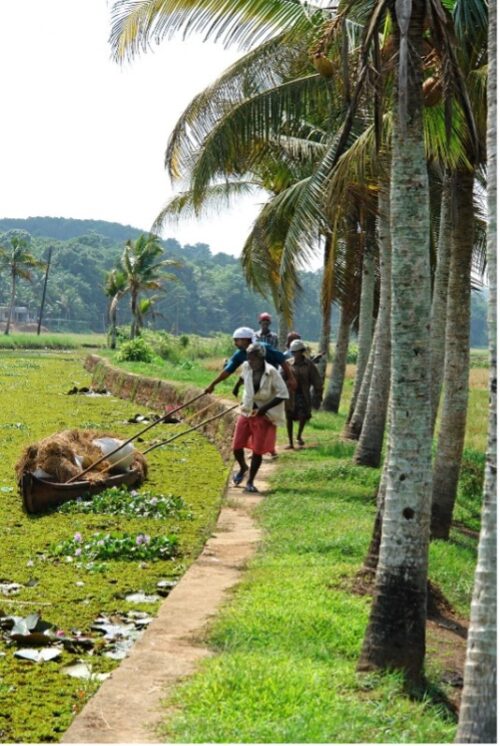
Photo provided courtesy of Unsplash.com.
By Christina Picci, Staff Writer
Farmers in India have been protesting three bills that were passed in September of last year designed to loosen the rules around the sale, pricing, and storage of farm produce. [1] This protest has been going on since November – making it one of India’s longest protests to date. [2] Protestors have created camps in New Delhi that are virtual cities. [3] These camps are equipped with elaborate stages where farm leaders and politicians have held rallies and gathered donations, a “farmers mall” where protestors can go to receive free essentials like toothpaste, underwear, and soap, and medical tents ran by volunteers who have been taking care of minor illnesses such as headaches and high blood pressure during the protests. [4] It has been reported by protest leaders that more than sixty protestors have died from illness or suicide, although an exact number of deaths could not be determined. [5] Despite this, the protest continues, and there does not seem to be a solution in sight for India’s small farmers. [6]
The protesting farmers have been demanding that the Prime Minister of India, Narenda Modi, repeal recent farming laws that have the impact of minimizing the government’s role in agriculture by providing more space for private investors. [7] This hurts small farmers in India because it could eventually lead to the end of wholesale markets and assured prices. [8] For example, one of the primary changes to India’s farming laws is that farmers will be allowed to sell their produce at a market price directly to private buyers such as agricultural businesses, supermarket chains, and online grocers. Most Indian farmers currently sell their produce at government-controlled wholesale markets or mandis at assured floor prices. [9] Therefore, farmers are concerned that if they are not satisfied with a price offered by a private buyer, they will not be able to return to the mandi or use it as bargaining leverage during negotiations, ultimately handing the agriculture market to big corporations. [10]
The government in New Delhi, led by the Bharatiya Janata Party (BJP), has tried to negotiate a compromise with the farmers but has thus far been unable to do so. [11] The government has said the mandi system will continue and they will not withdraw the Minimum Support Price they currently offer, but farmers are suspicious. [12] Farming accounts for barely a sixth of India’s GDP although more than half of Indians work on farms, only 6% of these farmers actually receive guaranteed price support for their crops, and more than 90% of them sell their produce in the market. [13] Furthermore, Modi’s ministers have offered concessions on some issues, such as exempting farmers from penalties under a new air pollution law, but the farmers have insisted on nothing short of repealing the laws altogether and enshrining minimum prices. [14] In addition, the protesting farmers accused the government of flouting parliamentary procedure by passing the bills hurriedly and not listening to their repeated demands of sending the bills to a parliamentary committee for further deliberations. [15]
Ultimately, the strength of the farmers’ mobilization has compelled the New Delhi government to suspend the recent farming laws for eighteen months and form a new committee including representatives of the government and the farmers to address their grievances. [16] However, nearly a dozen discussions between the 30-odd farmer unions and the government in New Delhi have yielded no results as of yet. [17]
[1] https://www.bbc.com/news/world-asia-india-54233080
[2] Id.
[3] https://www.nytimes.com/2021/01/09/world/asia/india-farmers-protest.html
[4] Id.
[5] Id.
[6] https://www.bbc.com/news/world-asia-india-54233080
[7] https://www.nytimes.com/2021/01/09/world/asia/india-farmers-protest.html
[8] https://www.bbc.com/news/world-asia-india-54233080
[9] Id.
[10] Id.
[11] https://theconversation.com/indias-farmers-are-right-to-protest-against-agricultural-reforms-152726
[12] https://www.bbc.com/news/world-asia-india-54233080
[13] Id.
[14] https://www.nytimes.com/2021/01/09/world/asia/india-farmers-protest.html
[15] https://www.bbc.com/news/world-asia-india-54233080
[16] https://theconversation.com/indias-farmers-are-right-to-protest-against-agricultural-reforms-152726
[17] https://www.bbc.com/news/world-asia-india-54233080